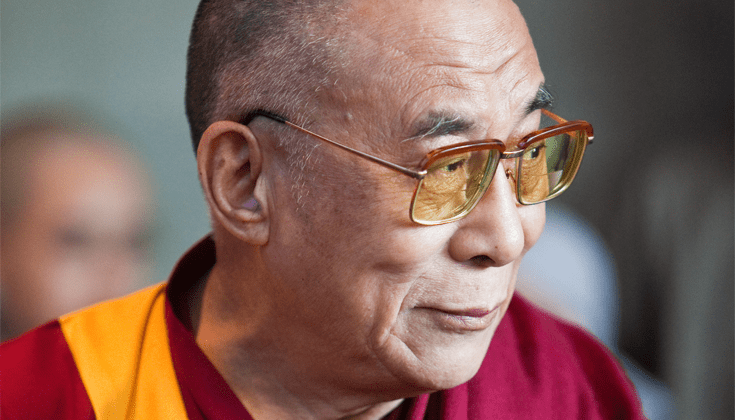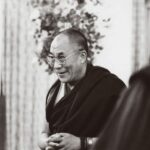Before we can generate compassion and love, it is important to have a clear understanding of what we understand compassion and love to be. In simple terms, compassion and love can be defined as positive thoughts and feelings that give rise to such essential things in life as hope, courage, determination, and inner strength. In the Buddhist tradition, compassion and love are seen as two aspects of the same thing: Compassion is the wish for another being to be free from suffering; love is wanting them to have happiness.
It is not enough to believe that compassion is important and to think about how nice it is!
Self-centeredness inhibits our love for others, and we are all afflicted by it to one degree or another. For true happiness to come about, we need a calm mind, and such peace of mind is brought about only by a compassionate attitude. How can we develop this attitude? Obviously, it is not enough for us simply to believe that compassion is important and to think about how nice it is! We need to make a concerted effort to develop it; we must use all the events of our daily life to transform our thoughts and behavior.
Many forms of compassionate feeling are mixed with desire and attachment. For instance, the love parents feel for their child is often strongly associated with their own emotional needs, so it is not fully compassionate. Usually when we are concerned about a close friend, we call this compassion, but it too is usually attachment. Even in marriage, the love between husband and wife—particularly at the beginning, when each partner still may not know the other’s deeper character very well—depends more on attachment than genuine love. Marriages that last only a short time do so because they lack compassion; they are produced by emotional attachment based on projection and expectation, and as soon as the projections change, the attachment disappears. Our desire can be so strong that the person to whom we are attached appears flawless, when in fact he or she has many faults. In addition, attachment makes us exaggerate small, positive qualities. When this happens, it indicates that our love is motivated more by personal need than by genuine care for another.
Compassion without attachment is possible. Therefore, we need to clarify the distinctions between compassion and attachment. True compassion is not just an emotional response but a firm commitment founded on reason. Because of this firm foundation, a truly compassionate attitude toward others does not change even if they behave negatively. Genuine compassion is based not on our own projections and expectations, but rather on the needs of the other: irrespective of whether another person is a close friend or an enemy, as long as that person wishes for peace and happiness and wishes to overcome suffering, then on that basis we develop genuine concern for their problem. This is genuine compassion. For a Buddhist practitioner, the goal is to develop this genuine compassion, this genuine wish for the well-being of another, in fact for every living being throughout the universe.
Adapted from The Compassionate Life, by the Dalai Lama. © 2001 Tenzin Gyatso, the Fourteenth Dalai Lama. Available from Wisdom Publications.

